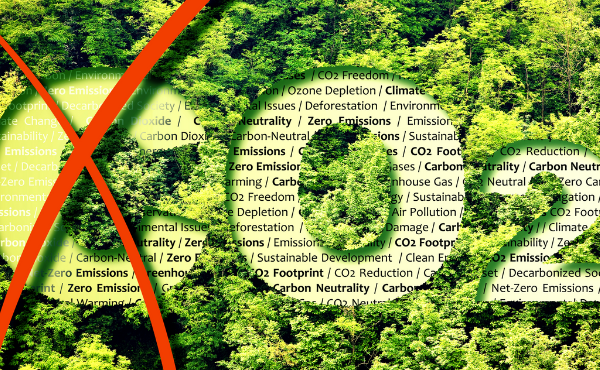Nazneen Rahman on AstraZeneca’s Holistic Approach to Sustainability

Dr. Nazneen Rahman, CBE, Board Member and Chair of the Sustainability Committee, AstraZeneca, will join a panel on'Transitions Pathways' at the 2024 ECGI Responsible Capitalism Summit on 10 September.
--------------------------------------------------------------------------
In a compelling interview ahead of the ECGI Responsible Capitalism Summit, Dr. Nazneen Rahman, Board Member and Chair of the Sustainability Committee at AstraZeneca, shares insights into the pharmaceutical giant’s ambitious sustainability strategy. With a holistic approach that intertwines climate and environmental protection targets, as well as a focus on health systems resilience and equity, AstraZeneca aims to address some of the most pressing global health challenges of our time. Rahman shines a spotlight on the company’s science-led initiatives, such as its Ambition Zero Carbon strategy, and highlights the significant role of innovation and collaboration in driving change at scale. The interview shares valuable perspectives on how AstraZeneca is approaching corporate sustainability and setting a benchmark for the pharmaceutical sector and beyond.
Could you briefly describe AstraZeneca's overarching sustainability strategy and how it aligns with global climate goals?
At AstraZeneca, we think about sustainability holistically – it’s how we build a healthier future for people, society and the planet. That’s an intentionally broad definition because achieving a healthier, more sustainable future requires tackling a broad range of challenges – from climate change to nature and biodiversity loss, to health equity and health system resilience, as well as inclusion and diversity. AstraZeneca is committed to driving positive change through impact and public-private collaboration, and takes a science-led approach in all that it does.
Turning to climate specifically: the climate crisis is one of the largest public health crises of our time, fuelling a steep rise in chronic and infectious diseases, as well as impacting how people around the world can access healthcare. At the same time, the healthcare sector emits around 5% of greenhouse gases globally, so everyone involved in the delivery of healthcare has a role to play in reducing its environmental footprint. It has been encouraging to see the link between climate and health increasingly recognised at the multilateral and governmental level, including at COP28 and through the WHO Climate & Health Resolution. Action is needed today, not tomorrow, to mitigate and adapt to the impacts of the climate crisis on health.
Accountability for AstraZeneca’s sustainability strategy, including its climate goals, is embedded across the organisation. From the Board of Directors which sets our ambitions, to the Sustainability Committee which guides and monitors our progress, to the Senior Executive Team, all the way to the 90,000 employees who deliver on our targets. The company’s employees are incredibly proud of its leadership in Sustainability.
How does AstraZeneca plan to meet its climate and environmental goals?
AstraZeneca is investing over $1 billion in its Ambition Zero Carbon strategy and is pursuing ambitious, science-based decarbonisation targets to transition to net zero:
- By 2026, we will have reduced our Scope 1 and 2 emissions by 98%.
- By 2030, we aim to halve our Scope 3 emissions
- On the way to being science-based net zero by 2045 at the latest.
By the end of 2023, AstraZeneca had reduced Scope 1 and 2 emissions (sites and fleet) by 67.6% from a 2015 baseline by optimising energy efficiency, shifting to renewable energy sources and transitioning to an electric vehicle fleet. This has been achieved alongside a growing business, demonstrating that it is possible to decouple business growth from emissions reductions.
In addition to avoiding and reducing emissions, AstraZeneca is investing in nature and biodiversity, recognising the deep connection between human and planetary health. Through the AZ Forest programme, the company has committed to planting and ensuring the long-term survival of 200 million trees across 6 continents by 2030. This is set to remove around 30 million tonnes of carbon dioxide from the atmosphere and deliver benefits to local communities and natural ecosystems, including the protection and recovery of threatened flora and fauna and improved public health.
What role do innovation and technology play in AstraZeneca’s sustainability efforts?
If we are to make tangible progress through sustainability efforts, we must think big – and this often means leveraging the latest innovations and technologies. Whether in R&D, the manufacturing and supply of our medicines, or the delivery of healthcare, Sustainability is embedded right from the lab to the patient.
For example, through AstraZeneca’s Green Labs programme, sustainability standards are embedded into research processes to reduce laboratory emissions and waste. So far, more than 4,000 colleagues are optimising ways of working and championing a sustainability culture in their labs.
How does AstraZeneca position itself as a leader in sustainability within the pharmaceutical industry, and what collaborative efforts or partnerships has it engaged in to advance global sustainability goals?
Impact at scale is best realised through collaboration. No single organisation can solve the environmental crises we face, make health outcomes more equitable, or strengthen health systems.
AstraZeneca plays a leading role in several public-private partnerships. For example, the Sustainable Markets Initiative (SMI) Health Systems Task Force, convened by AstraZeneca CEO Pascal Soriot, is a collaboration of global health leaders from the public and private sectors, committed to accelerating the transition to net zero healthcare systems.
- One example of concrete action is when five global healthcare leaders secured an industry-first, multi-party agreement through the SMI to access renewable power in China, resulting in potential annual carbon dioxide equivalent savings of around 120,000 tonnes.
Another collaboration where AstraZeneca plays a leading role is the Partnership for Health System Sustainability & Resilience (PHSSR) – which is active in over 30 countries.
- The PHSSR has built, and continues to expand upon, one of the largest bodies of work on the sustainability and resilience of health systems globally. It has published 26 reports with robust, evidence-based recommendations for policy change. These collaborative efforts have resulted in more than 30 policy changes around the world, strengthening health systems to positively impact care and treatment for millions of patients.
What are the biggest challenges AstraZeneca faces in achieving its sustainability goals, and how is the company addressing these challenges?
Scope 3 emissions remain a sizeable challenge for businesses in their decarbonisation strategies as this is where the lion’s share of emissions sit. That’s why AstraZeneca is:
- Engaging across its entire value chain to measure and reduce Scope 3 emissions.
- Setting the goal that by the end of 2025, 95% of key suppliers and partners by spend (covering purchased good and services and capital goods) will set science-based targets.
- Partnering with sector peers, including as a founding member of Energize, a collaboration between Schneider Electric and 19 global pharmaceutical companies, to facilitate access to renewable power at scale for suppliers. To date, 286 AstraZeneca suppliers have registered with the programme.
The Sustainability challenges organisations like AstraZeneca face are not simple to overcome, but we have real evidence which demonstrates that tangible action can be achieved through setting science-driven goals and pursuing them with rigour, collaboration and determination! I hope that these examples may also inspire other organisations to act – today, not in a few years… we don’t have time for that.
----------------------
Nazneen Rahman is a scientist, doctor, entrepreneur, and non-executive director. She is Founder and CEO of YewMaker, which creates science-based sustainable healthcare solutions, including MCF Classifier - a medicines carbon footprint solution. YewMaker initiated and leads the Sustainable Medicines Partnership, a not-for-profit collaboration of 48 organisations working to reduce the waste of medicines and from medicines. Nazneen is a Non-Executive Director at AstraZeneca, where she chairs the Sustainability Committee and is a member of the Science, Remuneration and Nomination Committees. She was previously Professor of Human Genetics and Head of Cancer Genetics at the Royal Marsden NHS Foundation Trust. She has received many awards, including a CBE for services to Medical Science. Nazneen is also a Singer-Songwriter and has released four albums.


